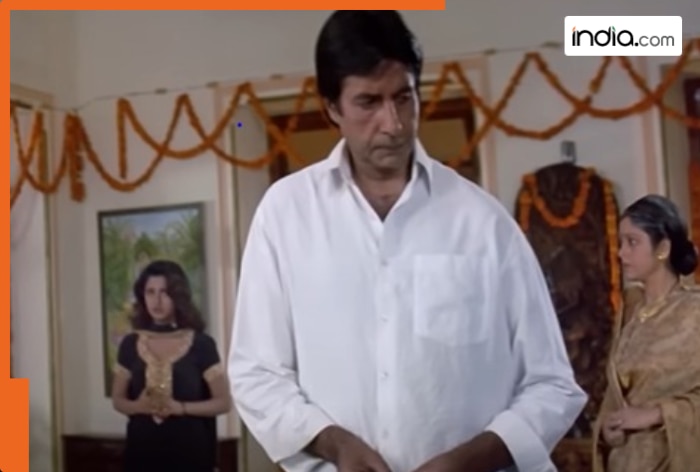How do you analyze Sixth Sense without spoiling the end? What would you say about Remember the Titans if you couldn’t say “football” or “racism?” How could you talk about Ocean’s 11 if its twist was George Clooney was actually planning a heist this whole time?
Talking about Blink Twice — the directorial debut of actor Zoë Kravitz — sets up a similar stumbling block. Because while its genre, stars and rating are all right there on the tin, the theme is definitively not. Here, it’s not just a plot twist you have to avoid revealing — it’s the entire point of the movie.
But while some apt advice for experiencing the horror-coded mystery would be to avoid any commentary and simply go in blind, there are reasons to unpack it beforehand — least of all to avoid any unpleasant and triggering scenes.
The other thing, though, is the fact that Blink Twice relies so heavily on hiding its theme — only revealing it midway through, something that only works properly if it’s not entirely seen coming. Without fully revealing that revelation, we start off the story following struggling part-time nail technician, part-time event server Frida (Naomi Ackie) as she admires tech mogul Slater King (Channing Tatum) from afar, things take a turn for the worse fairly quickly.
Frida is working a gala event with her roommate and friend Jess (Alia Shawkat), which the two sneak into before bumping into Slater himself — and scoring an invite to his exclusive private island. It is right about there things start to turn, and story begins to emerge. Through a hazy and not-always-sensical tech-horror, sci-fi plot that leads to Frida questioning her own memory, Kravitz’s story soon gives way to a clear statement.
And while she does so, the unsettling aspect of what’s clearly a satire rooted in class struggle begins to unravel at the distinctly darker edges.
WATCH | Blink Twice trailer:
It is important to note that especially in its second half, Blink Twice is an unflinching look at issues of sexual violence. And to be fair, it is a difficult knife edge that Kravitz walks: balancing the neon-tinged, fantastical aspects of her irrational memory-wiping conceit with the often-shattering mundanity with which exploitation and abuse is doled out in real life.
But even while avoiding giving away the game, the ambitious, though rough story, deserves to be defended from the onslaught of reviews criticizing it, because it’s just that: a creative and cool idea that’s just missing the finishing touches to pull it off. Because if the story Kravitz tells is pessimistic, impulsive and at times unbelievable, that’s because so is the reality Blink Twice inhabits.
The performances are partly to credit for its success, despite the negativity. As Frida and Jess wiggle their way into the exclusive, decisively odd lives of the ultra-rich, there’s a unique blend of comedy and dread throughout. Arjona screaming the words “fat blunt” to a bemused Haley Joel Osment, or Ackie juggling a distinctly phallic paperweight — these are placed between personal violations and other bloody, gut-wrenching scenes that shouldn’t be able to fit together.
That contrast in tone serves a purpose, though, as does a certain emotional hole in the centre of her characters. No one is good here — least of all the men testing their guests on their life plans and achievements over dinner like power-tripping guidance counselors. But neither is our lead: Frida discounts both her friends and own safety in a vapid desire for the finer things in life.
At the same time, Tatum’s quiet, menacing performance starts off as intriguing, before losing much — if not all — of its complexity by the monologued end. But a certain nihilism is not only to be expected, but necessitated in the statements Kravitz makes. Blink Twice is both a fable and critique, wrapped up in a genre suspense thriller.
More of a parable, the plot and its mechanisms do not need to survive CinemaSins-style criticism — and as culture commentary, neither do its evaluations of people need to be especially uplifting or multi-faceted.
Blink Twice exposes how banal our propensity for cruelty can be. It expresses a depressing, if obvious, assessment of humanity because it needs to be acknowledged — not because it’s narratively comfortable. It just gets to that twist in a slightly convoluted way, because it’s more concerned with the message’s impact than the real-world logic necessary to arrive at it. And the seemingly flippant tone whiplashes back and forth into its message in a way that can leave you first giggling, then gasping.
It’s a point that may not sit right, but rings true — while still, somehow, managing to be entertaining.







